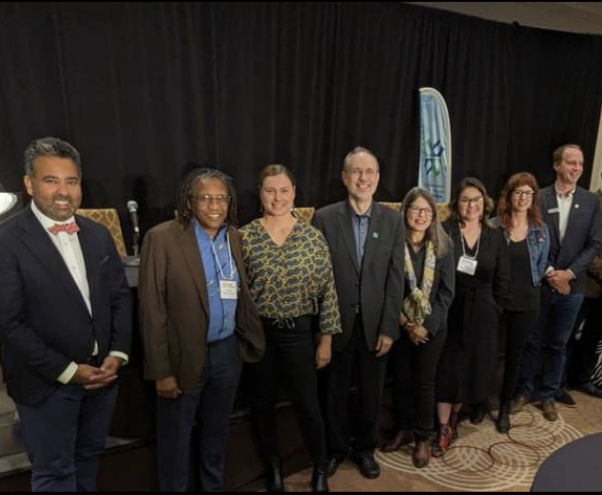Every year in October, the Ontario Non-profit Housing Association (ONPHA) hosts a provincial conference that brings together people to learn and share about everything from building, growing, to managing housing. Two major themes came out this year – the first looked at the struggles of small housing providers, and the second was at the challenges that faith-based communities face when trying to build new housing.
Some of the issues that were raised throughout the conference include:
Small housing providers aren’t sustainable and are rapidly exploring mergers and amalgamations
- During the 1990s, there was a lot of building of small apartments with affordable and subsidised housing – driven primarily by faith-based groups on church-owned land.
- Congregations all over the province have shared that they are struggling both with finding the volunteers required to oversee the buildings, and with the finances to manage the buildings. Some churches have even reported not being able to get board quorum in order to make decisions.
- With financial support from the City of Toronto, small housing providers have started merging, and the sector is expecting that we will be seeing a lot more in the coming years.
Churches are reporting difficulty making decisions about their future
- Churches that are interested in building are often struggling with having enough volunteers to start exploring their options, leaving many of them at risk for making a quick deal with a developer.
- Congregations are finding that grief and difficulty accepting change is a barrier for many members to imagine a new future, and this contributes to delays in planning and decision making about church land.
- Churches can start designing great projects, and then a change in church leadership, or church policy, can stall or cancel the project.
- Churches are overwhelmed by the planning and development process. But they don’t just need more information and education, they need hand holding and access to experts they can trust to help them through the process.
Misunderstanding of affordable housing
- Some church members are reluctant to look at including subsidized housing in building projects, because of a misunderstanding of social housing and what it would mean. More information is needed for churches about all the different types of housing that can be built, and the different types of services and tenants that can be included. For example, EHM has a number of very independent families and seniors living in our downtown residences who desperately want to move to a quiet, residential area – it only issue they’re facing is the lack of affordable apartments.
The state of the housing crisis has all levels of government looking at increasing options
- Inflation in materials and construction costs, combined with interest rates, are making it difficult to design viable plans. A number of housing projects planned before the interest hikes have been put on pause because of the impact on the cost to borrow funds.
- All levels of government are scrambling to remove barriers, with a (slow) rollout of announcements of new building incentive programs, and changes to city planning and height/building restrictions to make social housing building faster and more cost-effective.
While redevelopment conditions are difficult now, many in the sector are optimistic that continued pressure on all levels of government will start speeding up new programs to help churches build. If governments are going to continue to ask faith based landowners to unlock their lands for housing developments, they need to make it easier. Simply put, more help is needed to reduce planning time and building costs to truly unlock faith-based land for housing.

